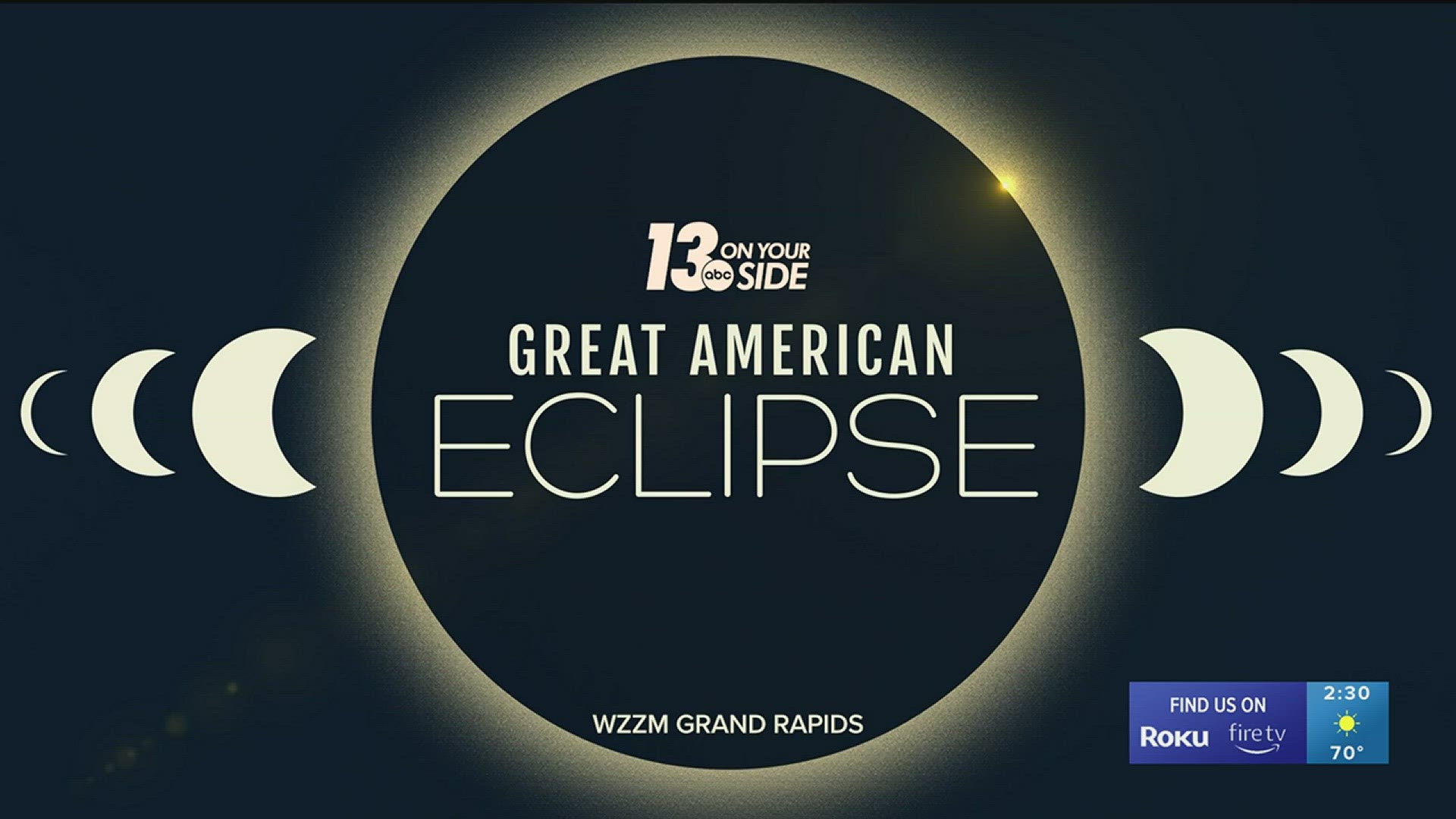GRAND RAPIDS, Mich. — Goosebumps. Tears of joy. Speechlessness.
Many experienced a range of emotions as the total solar eclipse began Tuesday in Mexico and then traveled across the United States.
Most of the country experienced a partial solar eclipse, while some lucky ones saw totality.
13 ON YOUR SIDE Meteorologists George Lessens, Samantha Jacques and Blake Hansen all had unique vantage points during the April 8, 2024, eclipse.
George travels to Arkansas
George traveled to Arkansas to be in the path of totality. This wasn't his first solar eclipse experience, but he said it was just as special.
"I have goosebumps guys. That's not only because of the awesome spectacle but because the temperatures dropped about 10 degrees...Oh my gosh, it's so amazing," George said while watching the eclipse through solar glasses.
At the moment of totality, George said you could see stars in the sky in Arkansas as well as the planet Jupiter.
Samantha Jacques travels to Indiana
Indiana, too, was in the path of totality.
Morning meteorologist Samantha Jacques traveled to Richmond, Indiana to see the total solar eclipse.
"Never seen anything like this. So cool... It gives you chills. Like something out of a movie," Samantha said. "The weather cooperated. Mother Nature cooperated. And right now we are seeing one of Earth's most magnificent spectacles."
Samantha noted how dark her surroundings got.
"The fact that it is completely dark outside. At this point in time, we can see stars. We can see planets because the sun is so powerful that it completely blocks out all of these incredible things during the day. And something as small as the moon can line up just right every once in a while to make this perfect event happen."
Blake holds it down in Muskegon
Meteorologist Blake Hansen spent his afternoon at the Muskegon Astronomical Society as they hosted an open house for the solar eclipse.
While most of Michigan was not in the path of totality, many Michiganders still experienced as much as 94% totality.
When is the next eclipse?
Full solar eclipses occur every two or three years, often in the middle of nowhere like the South Pacific or Antarctic. The next total solar eclipse, in 2026, will grace the northern fringes of Greenland, Iceland and Spain.
North America won’t experience totality in a solar eclipse again until 2033, with Alaska getting sole dibs. Then that’s it until 2044, when totality will be confined to Western Canada, Montana and North Dakota.
There won’t be another U.S. eclipse spanning coast-to-coast until 2045. That one will stretch from Northern California all the way to Cape Canaveral, Florida.
►Make it easy to keep up to date with more stories like this. Download the 13 ON YOUR SIDE app now.
Have a news tip? Email news@13onyourside.com, visit our Facebook page or Twitter. Subscribe to our YouTube channel.
Watch 13 ON YOUR SIDE for free on Roku, Amazon Fire TV Stick, Apple TV and on your phone.

